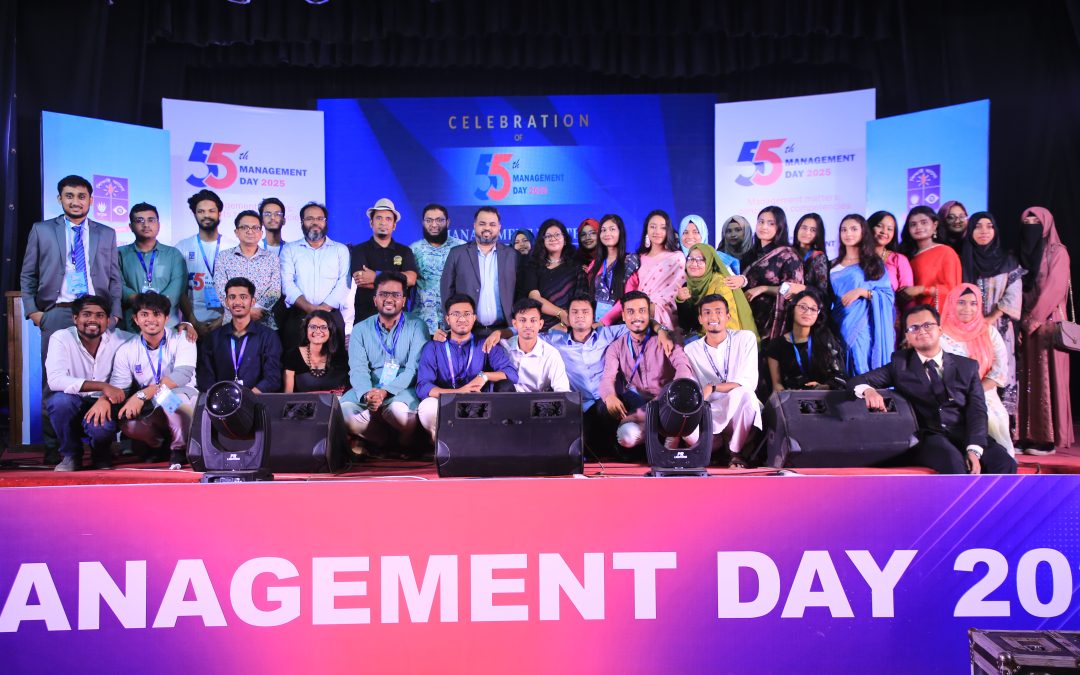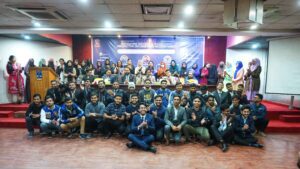
Dhaka University’s Management department has celebrated its 55th Management Day
The day commenced with a colourful rally, graced by the Dean of the Faculty of Business Studies, alongside faculty members and enthusiastic students. The formal programme began with the declaration of the day by the Honourable Pro-Vice Chancellor (Administration), Professor Dr Saima Hoque Bidisha.
A highlight of the event was a panel discussion on “The Need for Management in the 21st Century”, featuring esteemed speakers and attended by the Pro-Vice Chancellor (Academic) Professor Dr. Mamun Ahmed as the Chief Guest. Adding to the significance of the occasion, the long-awaited Management Alumni Association was officially launched by the Treasurer, Professor Dr Jahangir Alam Chowdhury.
The celebration witnessed the presence of senior professors, distinguished guests, alumni, and sponsoring partners. The programme concluded with an award ceremony, recognising winners of the case competition, cricket and football tournaments, and debating contest, followed by captivating cultural performances.














